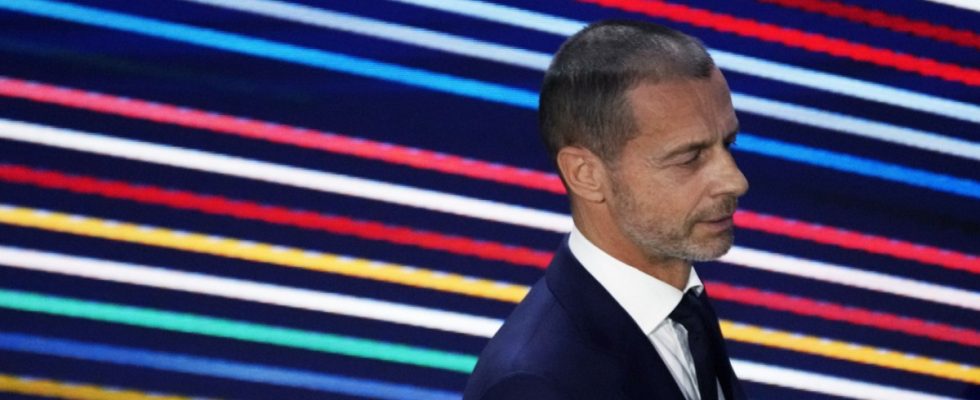A few allusions could already be seen when President Aleksander Ceferin gave his speech to the delegates of Europe’s Football Union (Uefa). The Slovenian first quoted his daughter, who had recently accused him of saying that her father sometimes reminded her of a character from “The Lord of the Rings” – although he had no interest in the ring of power. And then he dug out another clue from the ancient Romans’ treasure trove of sentences: “Quidquid agis, prudenter agas et respice finem,” he recited. “Whatever you do, do it wisely and consider the end,” the words mean in German. The last two in particular took on a special meaning shortly afterwards.
Ceferin, 56, did not yet announce the day’s drastic news for the sports world during the congress. He saved that for the subsequent press conference. He then declared that he would not run for president again in 2027 and that his time at the top of UEFA would end after eleven years. “I’m tired of Covid, tired of two wars and of nonsense projects like the so-called Super League,” he said.
There are two main reasons for his move: an organization like UEFA also needs “fresh blood” – and he himself has been separated from his family for long enough. He made the decision six months ago, but only communicated it to a small group. And then it has been extremely amusing to experience “this hysteria” over the past few weeks.
Ceferin was referring to the discussions that had recently taken place around him and UEFA. At the end of last year it became known that the association wanted to clarify the passage in its statutes, which limits the terms of office of all directors to three legislative periods. This rule was introduced in 2017 under Ceferin, who himself came into office in 2016. However, there was still imprecise wording as to when it would actually be valid.
Ceferin gives two reasons why he did not announce his resignation six months ago
Since then, however, the public debate has been almost exclusively about the question of whether Ceferin’s first term in office falls under this rule or not. Not only a Swiss legal opinion came to the conclusion that Ceferin could have run again in 2027 because a retroactive introduction would not be compatible with Swiss association law. After the overwhelming yes from the congress – only the English association voted against – the path was finally clear for Ceferin to run again. Instead, he announced that he would be quitting in three years – and, visibly angry, combined this with strong criticism of the media and the “self-proclaimed moralizers” who had accused him of bending everything for another term in office.
Ceferin gave two reasons why he did not announce his resignation six months ago but waited until now. On the one hand, he did not want to influence Congress. And on the other hand, he wanted to get to know the “true faces” of some people during the alleged hang-out – and he saw them.
Ceferin’s announcement represents a serious turning point for sports policy. The Slovenian, who was largely unknown when he was elected, has established UEFA in recent years as a clear counterpoint to Gianni Infantino and the world association (Fifa), which attracted attention with numerous escapades and scandals. He also vehemently opposed the efforts for a Super League, which continue despite some setbacks – particularly from a group around the two major Spanish clubs Real Madrid and FC Barcelona as well as the sports marketer A22. In Paris, Ceferin once again distributed in their direction. “Some people think that they can buy everything, but you can’t buy 70 years of history,” said the Slovenian, who was clearly having his classical philology day and described the planned Super League as the “Pleonexia League”, i.e. the league of the greedy.
However, Ceferin received support not only from the UEFA delegates, but also from politicians. The French Sports Minister Amélie Oudéa-Castéra immediately pointed out in her welcoming speech how important it is to protect the European sports model. The day before the congress also reported Politico, that France is gathering support for a resolution in the European Union, according to which there should be a “link between annual performances in national competitions and all European competitions”. All EU members have already signed – with the exception of the country from which the last two remaining major clubs come, the only ones still openly pushing for the Super League: Spain.

